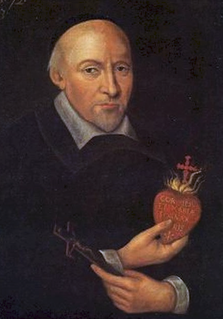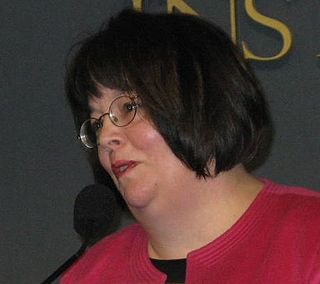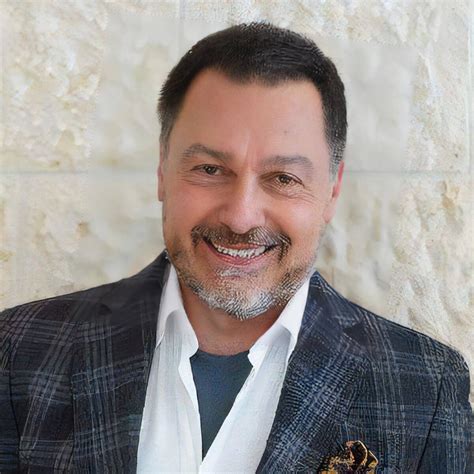A Quote by Pope John Paul II
For 2,000 years, the Church has been the cradle in which Mary places Jesus and entrusts Him to the adoration and contemplation of all peoples. May the humility of the Bride cause to shine forth still more brightly the glory and power of the Eucharist, which she celebrates and treasures in her heart. In the sign of the consecrated Bread and Wine, Christ Jesus risen and glorified, the light of the nations, reveals the enduring reality of His Incarnation. He remains living and real in our midst in order to nourish the faithful with His Body and Blood.
Quote Topics
Adoration
Been
Blood
Body
Bread
Bread And Wine
Bride
Brightly
Cause
Christ
Church
Consecrated
Contemplation
Cradle
Enduring
Eucharist
Faithful
Forth
Glory
Heart
Her
Him
His
Humility
Incarnation
Jesus
Light
Living
Mary
May
Midst
More
Nations
Nourish
Order
Our
Places
Power
Real
Reality
Remains
Reveals
Risen
She
Shine
Sign
Still
Treasures
Which
Wine
Years
Related Quotes
Mary lived in the divine Eucharist, the center of her love. All her thoughts, words, and actions sprang from It like the rays from the sun. The Eucharist was the oracle which she consulted, the grace which she followed. But Jesus Christ in His Sacrament lives the same life of love which consumed Him in His mortal days. In His sacramental state He continues to adore His Father by His depthless self-abasement. He is still the Mediator and Interceder with divine goodness for the salvation of men
But look at the men who have those perverted notions about the grace of Jesus Christ which has come down to us, and see how contrary to the mind of God they are. . . . They even abstain from the Eucharist and from the public prayers, because they will not admit that the Eucharist is the self-same body of our Savior Jesus Christ which flesh suffered for our sins, and which the Father of His goodness raised up again.
This is a real presence which includes every dimension of who Jesus is: body and blood, human soul and divine person. The consecrated Eucharistic species are the Lord and therefore command our adoration. We do not adore ourselves, nor the ordained priest, nor the Bible, even though these are vehicles for Christ's spiritual presence; we do adore the Eucharist, this blessed sacrifice made really present sacramentally.
Where was Mother Teresa's Jesus? He was in the Bible, in the church, in her prayer, in the Eucharist, in her sisters, in the heart of everyone she met, and especially in the poorest of the poor and the lowest of the low. Jesus was in disguise in each one of them. Jesus was behind the foundation of her order. Jesus was behind all that she did.
the Twelve Apostles are the most evident sign of Jesus' will regarding the existence and mission of his Church, the guarantee that between Christ and the Church there is no opposition: despite the sins of the people who make up the Church, they are inseparable. Therefore, a slogan that was popular some years back, 'Jesus yes, Church no,' is totally inconceivable with the intention of Christ. This individualistically chosen Jesus is an imaginary Jesus.
Across a chasm of eighteen hundred years, Jesus Christ makes a demand which is beyond all others difficult to satisfy; He asks for that which a philosopher may often seek in vain at the hands of his friends, or a father of his children, or a bride of her spouse, or a man of his brother. He asks for the human heart; He will have it entirely to Himself. He demands it unconditionally; and forthwith His demand is granted. Wonderful!
I ask you to consider that our Lord Jesus Christ is your true head and that you are a member of his body. He belongs to you as the head belongs to the body. All that is his is yours: breath, heart, body, soul and all his faculties. All of these you must use as if they belonged to you, so that in serving him you may give him praise, love and glory.
The resurrection is the keystone of the arch on which our faith is supported. If Christ has not risen, we must impeach all those witnesses for lying. If Christ has not risen, we have no proof that the crucifixion of Jesus differed from that of the two thieves who suffered with him. If Christ has not risen, it is impossible to believe his atoning death was accepted.
Thoughtful men, with hearts craving the truth, have come to seek in the Catholic Church the road which leads with surety to eternal life. They have understood that they could not cleave to Jesus Christ as the Head of the Church if they did not belong to the Body of Jesus Christ which is the Church. Nor could they ever hope to possess in all its purity the faith of Jesus Christ if they were to reject its legitimate teaching authority entrusted to Peter and his successors.
Mary adored Jesus as the Bridegroom of souls. Union is the final purpose of love. Jesus by the gift of His substance in the Eucharist unites Himself with our souls as with His dear spouses. As a Bridegroom, He gives them all His possessions, His name, His heart, His whole Self, but on the condition that the soul reciprocates. The soul, His spouse, shall live for Him only
We are on the cusp of the emergence of a company of hidden men and women who with all faith and patience have been enduring great struggles and dealings, being processed by the Lord and filling up what is lacking in the afflictions of Christ. These are not those who seek a reputation for themselves, their passion is His glory and giving Him the church He has longed for. May God grant us all the heart of apostolic fathering and mothering that can release His power in the earth. Zion is once again in travail to bring forth her children.
When I look at Jesus' warm and intimate friendships, my heart fills with praise that Jesus was. . . a man. A man of flesh-and-blood reality. His heart felt the sting of sympathy. His eyes glowed with tenderness. His arms embraced. His lips smiled. His hands touched. Jesus was male! Jesus invites us to relate to him as the Son of Man. And because he is fully man, we can relate to Jesus with affection and love.
The Eucharist is not only a particularly intense expression of the reality of the Church's life, but also in a sense its fountainhead. The Eucharist feeds and forms the Church: 'Because there is one bread, we who are many are one body, for we all partake of the one bread' (1 Cor 10:17, RSV). Because of this vital link with the sacrament of the Body and Blood of the Lord, the mystery of the Church is savored, proclaimed, and lived supremely in the Eucharist.






































